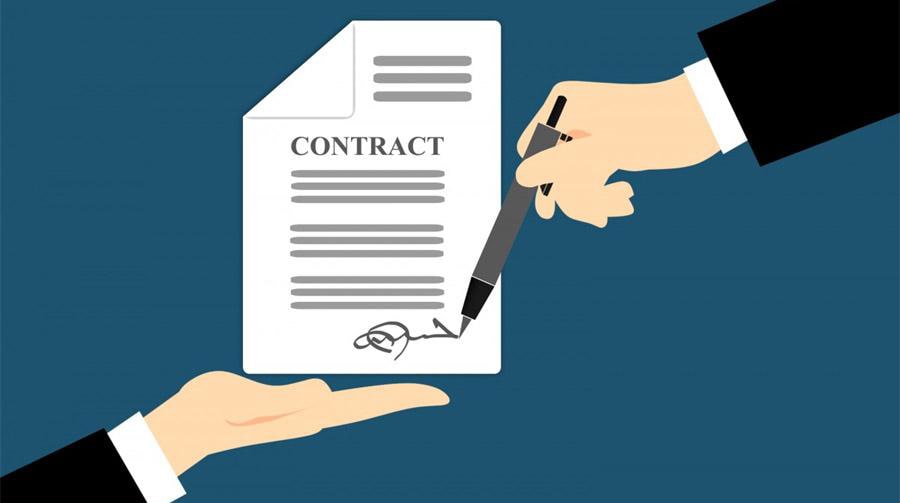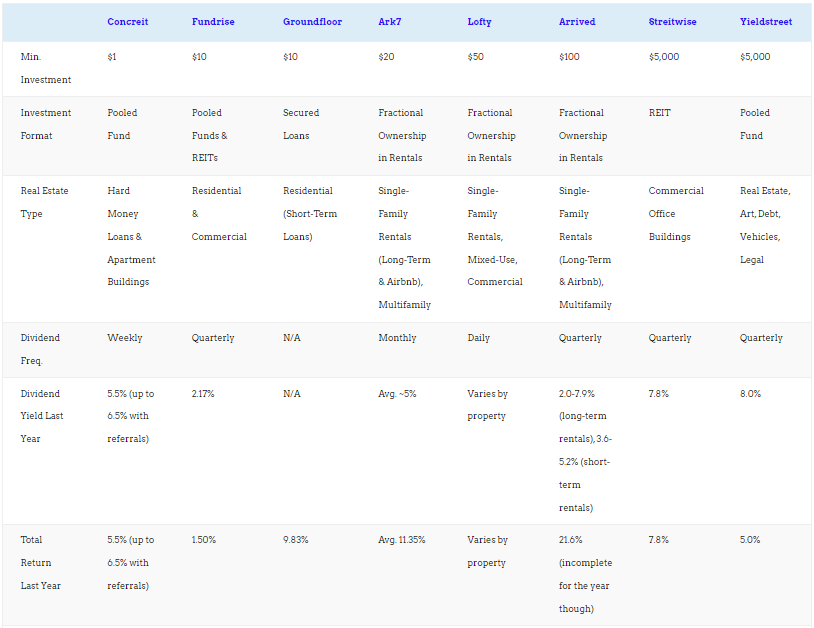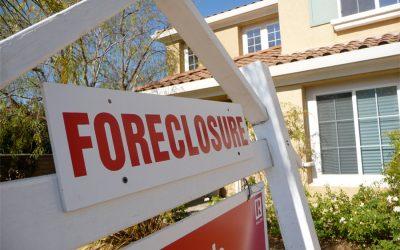
People talk about real estate wholesaling almost as if it’s cheating. Too good to be true. But what is a real estate wholesaler, anyway?
Real estate wholesalers never actually own the properties they put under contract. Instead, they simply flip the contract to an end buyer — and earn a markup for their trouble.
It’s the closest thing there is to a quick buck in real estate.
Is real estate wholesaling legal? What skills do you need as you learn how to wholesale real estate? What kinds of profits can you earn as a real estate wholesaler?
Strap in and hold onto your britches.
What Is Wholesaling Real Estate?
Real estate wholesalers find properties at a bargain price and put them under contract. But they don’t actually close on the properties themselves — they find some other real estate investor to buy at the closing table.
Operating as a middleman, real estate wholesalers mark up the end sales price. They assign the contract to the end buyer, and collect their assignment fee (their margin) at settlement, where the actual real estate transaction takes place.
Put another way, a wholesaler of real estate typically finds motivated sellers willing to accept a low sales price. In the period between signing the sales contract and closing, the wholesaler finds an end buyer who agrees to pay a higher price for the property than the wholesaler’s contract with the seller.
What Is An Example Of Wholesale Real Estate?
Imagine a wholesaler finds a property worth $125,000, where the owner is willing to sell for $95,000. The wholesaler puts the property under contract, then reaches out to their buyers list offering the property for $100,000.
The end buyer scores a great deal, effectively getting a $25,000 discount on the property. The seller gets a quick and certain sale, and the wholesaler walks away with $5,000 in cash as their margin.
All without ever having to purchase the property. That means no down payment, no financing hassles, no messing around with contractors or repairs or permits or inspectors.
Because they never actually buy or own the property, real estate wholesalers don’t need much cash to get started. It’s one of the few ways to get started in real estate with $1,000.
Is Real Estate Wholesaling Legal?
In most states, individuals do not need a real estate (or any official state-issued) license to wholesale real estate, merely an unofficial right to make money from his effort and negotiating prowess. However, some states have challenged the use of assignment or finder’s fees as illegal schemes to avoid having a real estate agent license.
In fact, being a licensed real estate salesperson could even hinder your efforts to score great deals. Licensed agents need to reveal their status as such when they make offers to put houses under contract.
Other regulatory bodies may limit the language and methods to be followed when soliciting distressed property for purchase. According to attorney Brian Pendergraft, Maryland’s Protection for Homeowners in Foreclosure Act (PHIFA) prevents anyone acting as a potential buyer from claiming they are “assisting the homeowner in preventing foreclosure.”
Rather than blunder into a lawsuit or an unpleasant experience with regulators, potential real estate wholesalers should consult a real estate attorney to understand their state’s regulations.
How to Wholesale Real Estate in 2024
If you want to wholesale properties, you need to master two unique skills: (1) finding great real estate deals, and (2) finding buyers for them.
Wholesaling is a business, like buying and managing rental properties or any other real estate business. Don’t confuse a quick sale with free or easy money, despite what critics outside the real estate industry might say.
Find Spectacular Off-Market Deals
Don’t expect to find wholesale deals on the MLS, being publicly marketed by a real estate broker. By definition, these are properties selling for market pricing.
Instead, wholesalers look for motivated sellers, from distressed homeowners in foreclosure to frustrated landlords to driving for dollars. Even in hot markets, wholesalers and investors can find good deals on real estate using tools like Propstream, Foreclosure.com, and Deal Machine. These tools can not only identify motivated sellers, but also help with your marketing strategy such as direct mail, emailing, or calling prospective sellers.
Note that distressed sales include more than just foreclosures. It can also mean properties in tax sale, or with divorcing owners. Tools like Foreclosure.com can show you all the local distressed properties in your market, such as:
A few other wholesaling strategies to find off-market properties include:
-
- Use of “bird dogs.” Many wholesalers employ assistants — usually college students part-time — to canvass neighborhoods and knock on doors to find potential sellers. The “bird dogs” typically work on a commission basis, being paid if and when the wholesaler puts a property under contract and profitably wholesales it.
- Scouring public records. Tax filings and divorce court proceedings to identify potential properties that are likely to be on the market quickly is a common wholesaler strategy. For example, many homes of older people are structurally sound but lack updating to current market tastes. Motivated sellers, such as out-of-town beneficiaries of an estate, might prefer to avoid the expense and time to bring the house to market conditions and would be willing to sell. Likewise, couples amid a divorce are usually anxious to move on with their lives. They may be willing to take a discounted price for a quick and sure sale.
- Bandit signs. While not legal everywhere, those “We Buy Ugly Houses!” signs do still work in many markets. Just make sure it’s legal in your city before you throw them up on every street corner; it’s not exactly hard for the police to find you, with your phone number in huge letters across the sign.
Build a Network of Buyers
We’ve all heard the dog who chases cars until he finally catches one, prompting him to wonder: “What do I do now?”
To make sure they can unload the contract for a markup, wholesalers must build a network of local real estate investors who can move quickly and decisively on a purchase. After all, wholesalers don’t intend to buy the property themselves. They need a long mailing list of prospective buyers.
Most buyers of distressed or undervalued real properties either intend to renovate the property to flip or keep as a rental property through the BRRRR method. Accordingly, investors usually prefer to buy property in specific locations and price ranges. Knowing each of your buyer’s criteria and preferences beforehand eliminates wasted time and effort.
Your buyers might use investment property loans of course. But they can get tripped up in underwriting, or their financing can fall through in other ways. Add as many cash buyers to your buyer’s list as possible.
Many house flippers rely on wholesalers as their sole source of deals. Using a wholesaler avoids the hassle of finding deals on their own.
You can find other buyers in local real estate investing clubs or online groups. SparkRental’s own Facebook group for real estate investors is one of the largest online, with nearly 45,000 members. Remember that the more you network, the more likely that you will meet potential buyers and sellers, lead sources, partners, and even mentors.
Wholesale Real Estate vs. Flipping
Flippers buy a fixer-upper, renovate it, and sell it for a profit. Long-term investors using the BRRRR method do likewise, except the refinance the property with a long-term mortgage instead of selling it.
Real estate wholesalers never take title to the property at all. They simply put it under contract, and then assign that contract to an end buyer. That drastically reduces their risk, and they earn their profit immediately at closing.
Pros & Cons of Wholesale Real Estate
Some of the advantages of wholesaling real estate include:
-
- Minimum cash required to get started: All you need is enough cash for the earnest money deposit.
- No financing required: You don’t need to worry about taking out an investment property loan.
- No repairs or contractors: Managing contractors and overseeing repairs are some of the biggest headaches in real estate investing. Wholesalers skip them entirely.
- No permits or inspections: Because wholesalers don’t take title to the property, they don’t have to pull permits or hassle with local housing inspectors.
- Low-risk way to learn how to find deals: You can learn the ropes of how to score great deals on properties, without actually risking your own cash on buying them.
Of course, real estate wholesaling isn’t all rainbows and butterflies. It comes with its own downsides and risks. Some of the disadvantages of wholesaling real estate include:
-
- Labor and costs to find deals and build a buyers list: Contrary to appearances, it takes a lot of time, effort, and sometimes money to find great deals on properties. That could include driving for dollars, direct mail campaigns, email and social outreach campaigns, voicemail campaigns, or any other number of marketing tactics to reach out to motivated sellers. Unlike passive investing in real estate syndications or real estate crowdfunding, it’s a business, and you have to treat it as such.
- Risk of not finding a buyer: What happens if you can’t find a buyer for your contracted property? You could lose your EMD if you default, or you could buy the property yourself. Are you prepared for this possibility?
How to Succeed at Real Estate Wholesaling: Support Personnel
In addition to bird dogs and an attorney familiar with real estate laws, successful wholesalers rely on several trusted professionals to streamline their wholesale transactions:
-
- Contractor. A knowledgeable contractor can evaluate a property and identify and price needed repairs or remodels necessary to increase market value. This knowledge, even though the wholesaler is pricing the property “as is,” is an added benefit to potential buyers.
- Appraiser. The ability to act swiftly is often the difference between acquiring a property or waiting on the church steps. Working with an appraiser who is available on short notice and understands the wholesaler’s objectives ensures that the purchase price and projected sale price leaves room for a profit.
- Title company. Wholesalers need title companies familiar with real estate wholesaling and assigned contracts. In some cases, they may opt to do double closings (more on that shortly), which requires an investor-friendly title company.
Don’t try wholesaling as a real estate investment strategy if you hate networking.
How Do I Structure a Wholesale Contract?
In addition to the standard clauses, a purchase contract used by a wholesaler should include the following provisions:
-
- Assignability. The goal of a wholesaler is not to own real estate, but to have an exclusive right to purchase it at a specific price. This right is then sold to a buyer who will take possession of the property on closing. Accordingly, the sale agreement must be transferable to a third party without limitations. Any restriction on the right to assign reduces the value of the right to purchase.
- Exit or Contingency. Wholesalers do not want to take ownership of their purchase-contracted properties. As a result, real estate purchase agreements should include a clause that allows the wholesaler to walk away under certain conditions, in case they can’t find a buyer. Securing an exit option may require sacrificing the earnest money deposit, so wholesalers should minimize this to reduce risk.
When & How Do Wholesalers Get Paid?
Wholesalers can structure their deals in several ways. One option involves conducting two settlements: one in which the wholesaler buys from the seller, and an immediate second settlement where the wholesaler sells to the real estate investor.
It’s an imperfect option for several reasons. First, it leaves the wholesaler having to come up with the money to buy the home. Two settlements also mean two rounds of closing costs. Finally, the wholesaler risks the buyer failing to settle, leaving them stuck with a property they had no intention of owning.
But it comes with one huge advantage: it keeps the seller and investor completely separate, so neither objects to the wholesaler’s margin.
Some investor-friendly title companies allow a double closing, where the buyer-investor’s money funds the seller without the wholesaler having to come up with the full purchase price. Each title company handles these differently, so talk to as many as possible and find the best deal.
Alternatively, wholesalers can simply assign the real estate purchase contract, and let the investor buy directly from the seller. That leaves the wholesaler with a conundrum about how to list their fee without angering sellers and lenders. The easiest option is simply to list an “Assignment Fee” on the settlement statement (more on this momentarily).
Depending on the terms of the two contracts (the seller/wholesaler and wholesaler/buyer), the wholesaler may be paid in either of two stages of the process:
-
- Buyer’s purchase of the wholesaler’s contract with the buyer. The buyer pays the wholesaler when the buyer assumes the legal rights of sales contract, or
- The closing of the transaction between seller and buyer. When funds and title of the property changes hands, the wholesaler receives his fee.
Most investors prefer the latter stage to limit their expenses until the closing of the final sale. But wholesalers should always collect a deposit from the investor, to cover their own earnest money deposit and other costs in case the investor proves unable to settle.
How Should I Take My Fee?
Decisions about the nature and timing of a wholesaler’s profit (or fee) generally depend on the regulation of real estate transactions in the state where the property is transferred. Common methods include:
-
- Listing an assignment fee on the settlement statement. In these cases, the title company will pay the charge at an integrated closing, i.e., the buyer of the property replaces the wholesaler to create a single transaction between buyer and seller. However, some states consider an assignment fee as a disguised real estate commission and may require the wholesaler to have a real estate license to receive payment. For example, contracts to purchase HUD-financed homes or foreclosures generally aren’t assignable in any state. Wholesalers can sometimes get creative with what they call their fee, listing it as something obscure like “Buyer Acquisition Outreach Fee” so as not to anger sellers or lenders.
- Receiving the profits from back-to-back transactions. In some states, a wholesaler must participate in back-to-back closings, the first to purchase the property from the property seller and the second – a transfer from the wholesaler to the final purchaser. This method may significantly increase the wholesaler’s costs since each transaction is likely to require double payments for a title search and real estate transfer taxes. In some cases, the wholesaler will be required to deposit his own funds to close the purchase before receiving funds from the subsequent sale. He may be required to take a short-term loan from a transactional lender.
- Taking the fee separately from the seller or buyer. In some instances, a wholesaler might act solely as an agent for one of the two principals — helping the seller find a buyer and vice versa. The fee for the service may be fixed, or a percentage of the sales price and is usually contingent on the transaction occurring. The agreement between the contracting party and his agent must be carefully drawn to avoid potential regulatory problems.
Purchase Options vs. Purchase Agreements
In my younger years, I aggressively pursued a wholesale strategy with commercial warehouses and raw land, using 12 to 18-month option-to-purchase contracts. In most cases, I paid the property owner a fee equal to 2-5% of the purchase price for an exclusive right to buy the property over a specific period, the price for option depending on the contracted sale price for the property. With the option in place, I searched for buyers, never taking ownership of the property itself.
In my case, some options expired at a total loss, others I sold for less than my cost, and some I sold for various levels of profit. Overall, my strategy was profitable. In hindsight, that was probably due to the particular market environment of the time. Commercial properties in Dallas had been significantly over-built, financed by naive investor groups expecting a sure thing. Rather than ride out the real estate cycle, they preferred to take tax losses and move on to the next “hot” investment.
The use of options typically requires more capital than a purchase agreement with a walk-away contingency clause. Still, they’re another useful tool in your toolkit, and give you a longer period of time to find a principal buyer.
What If I Can’t Find a Buyer?
Real estate wholesalers share a collective nightmare: putting a property under contract then failing to find a buyer. Practically speaking, a wholesaler who cannot find an offsetting buyer has two choices:
-
- Defaulting on the purchase contract. The wholesaler can refuse to close the purchase transaction, preferring to be liable to contract provisions that might include the loss of his earnest money. However, the best way to avoid such situations is to always include an exit contingency clause in your purchase contracts. This provision enables you to extinguish your obligation if you cannot find a buyer between the contract and closing dates. Any portion of your earnest money that can be recovered in such cases is a win.
- Close the purchase and become a real estate “wholetailer.” Real estate professionals refer to wholetailing as a cross between wholesaling and flipping. Whereas some wholesalers inadvertently acquire properties, others intend to take possession (close) quickly, perform minimal rehabilitation or remediation necessary to list for sale, and remarket it. Wholetailing is typically practiced in states where disclosure of real estate sale prices is not required, and the purchase price will not affect the appraisal value.
Don’t like the risk, or all the work involved in wholesaling properties? Invest passively in real estate crowdfunding or real estate syndications instead.
More FAQs About Real Estate Wholesaling
Still have questions?
We get it — wholesaling real estate can get tricky. These other common questions might help clear up wholesaling in real estate.
Is Real Estate Wholesaling Risky?
Wholesaling comes with its fair share of risks. The buyer could back out, or their financing could fall through, or they could fail to settle for some other reason. That leaves you with you a property under contract that you may not be able to close on yourself.
Or the seller could back out. Or new information could come to light about the property. Or any number of other curveballs could come at you. That’s part of being in business: you plan for every contingency you can think of, and adapt to the rest as you go.
Do You Need a License to Wholesale Real Estate?
In most states no, you don’t need a real estate license to wholesale real estate. In fact, having a license could even hurt you, as you’d need to disclose it to all sellers.
That said, some states don’t like wholesalers to charge assignment fees on the settlement statement. Check your state’s laws, and when in doubt talk to an attorney in your state.
What Is a Wholesale Real Estate Contract?
The sales contract itself may mention that the wholesaler reserves the right to assign the contract to another buyer for a fee. Or it may not.
Is Wholesale Real Estate A Good Investment?
Wholesaling real estate isn’t an “investment” at all — it’s a business model. You don’t actually buy any assets, you simply act as a middleman earning a finder’s fee.
What Is Virtual Wholesaling?
Virtual real estate wholesaling works exactly the same, except you do everything, well, virtually. You never step foot in the property, and you may never meet the buyer or seller in person. You conduct every step of the wholesaling process electronically, relying on technology such as virtual tours, video calls, e-signatures for purchase contracts, and perhaps even a virtual settlement. Virtual wholesaling in real estate lets you flip contracts anywhere, without needing to be near the properties, sellers, or buyers.
How Do I Make Money through Virtual Wholesaling?
The same way you make money through old-school property wholesaling: with an assignment fee. You earn a spread on what the end buyer pays and the sales price on the purchase contract.
How Do You Get Paid in Wholesale Real Estate?
That depends on whether you conduct a single settlement, listing an assignment fee on the closing statement, or whether you conduct two separate settlements and earn the difference between the two sales prices. See the section above entitled “How Should I Take My Fee.”
Final Word
Is wholesaling real estate legal? Sure, and you don’t have to be a licensed agent to do it in most areas. But that doesn’t make it as easy as it sounds, no matter how hot or cool the real estate market.
Real estate wholesaling comes with low cash requirements and the opportunity to learn the nuances of real estate investment at your own pace. Unlike investing in the stock market or buying a bond, your success is wholly dependent on your effort to find potential deals and negotiate effectively.
If you can find good deals on real estate, and you can build a list of investor-buyers, you can earn good money as a real estate wholesaler.♦
Have you ever tried wholesaling as a real estate investing strategy? What were your experiences in the real estate wholesale business?
The More You Learn, the More You Earn as a Landlord:
About the Author




























I’ve been thinking about wholesaling real estate for a while now. Just been nervous about getting stuck with a deal. But this was helpful, sounds like the trick is to build some back doors into the sales contract so you can withdraw if you fail to find a buyer.
As always, thanks for an awesome article!
I knew that this is done with properties, but I never knew it’s called wholesaling real estate. Thank you for sharing.
Glad you found it helpful Helga!
Never knew that wholesaling is more practical. Thanks for this article!
Glad it was useful for you Maddie!
This is an awesome topic. Hoping to get started with wholesaling myself soon. Love the blog!
Thanks Mia, keep us posted on how it works out!
“Wholesaling real estate” this term will create a new sales opportunity in the field of real estate sale. Thanks the author for an innovative new idea.
What a great opportunity. Never knew about this. Going to do some more reading on real estate wholesaling.
Glad you got something out of it Mike!
I thought wholesaling is easy. I was wrong, didn’t realize the possible nightmares of wholesaling. Thanks for the share.
Yeah wholesaling real estate might look like easy money but it comes with plenty of its own risks and labor. Still a great business model though for people good at finding good deals and building networks of buyers!
I started my real estate career as a wholesaler. It was a painful learning curve, but a great way to develop new skills and strategies while getting paid.
I lost money on my first few deals too MM!
Wow this great information for my nwew business!
Thank you and I will keep you posted. Super excited!!!